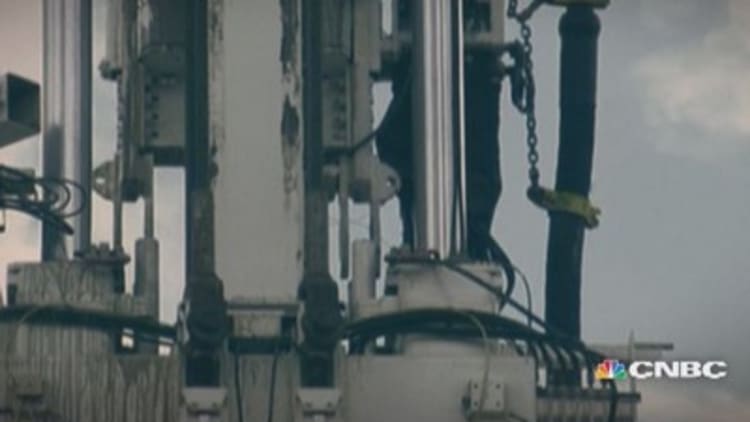
If there's one energy topic to spark controversy and fierce debate, it has to be "fracking".
Supporters of the process -- which involves fracturing shale through an hydraulic process to obtain oil or gas -- point to the potential for better energy security, cheaper bills, and the economic benefits brought to boom towns such as Williston, North Dakota as reasons for large scale adoption.
Read MoreSunny side up: World's staggering solar plants
Those against argue that pollution, the destruction of the countryside and the threat of earthquakes are all damaging consequences of the technique.
In the U.K., authorities are keen to explore the possibilities of fracking for shale gas, with Prime Minister David Cameron a keen supporter, saying it would, "be good for our country."
A recent report from EY, commissioned by the UK Onshore Operators Group, estimated that a £33 billion ($56 billion) spend could be required to bring U.K. shale wells into production between 2016 and 2032, with 64,000 jobs created as a result.
Read MoreRural India's lights are switching on
Could fracking work for the U.K.? "We know there is good organic carbon content, which is encouraging," Glynn Williams, from oil and gas services investor Epi-V, said in a report for CNBC's Energy Future.
"What we understand, however, is that our drilling costs are going to be much higher than the United States… probably the biggest question that has yet to be answered, is 'how much will these wells produce?'."
Read MoreTurning point as China plans to cap CO2 emissions
Greenpeace U.K.'s Chief Scientist, Doug Parr, cautioned against assuming that fracking in the U.K. would mirror fracking in the U.S. "The conditions for shale in the U.K. are completely different from shale in the U.S.," he said. "We have a higher population density… much more connection with markets, more stringent environmental regulation," he added.
In May of this year a report by the British Geological Survey stated that that there could be around 4.4 billion barrels of untapped shale oil in the south of England, but also concluded that there was, "no significant Jurassic shale gas potential in the Weald Basin," the area that was assessed.
The reality for the U.K. is that a significant amount of wells will be needed to find out whether the extraction of gas and oil is commercially viable. And even if this does happen, governments will need to think very carefully about the longer-term picture.
"Generally, a shale gas well will produce nearly half of its reserves in the first year to 18 months, [with] annual decline rates of perhaps 30-40 percent – new wells have to be constantly drilled in order to maintain production levels," Arthur Berman, a geologist and energy analyst, told Energy Future.
"I think it would be wise for investors to try to objectively sort through the facts and realities about the profitability of US shale operations. They're simply not commercial for the most part, at present gas prices," he added.
Follow us on Twitter: @CNBCWorld




